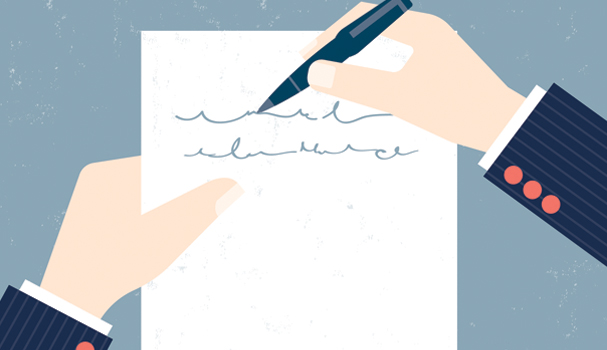Franchising might be a great enabler of fast and sustainable business growth but before striking out and launching a franchise network, a company first needs to establish whether or not its business model is one that can be replicated in all parts of the country. That’s why many would-be franchisors launch a pilot franchise before taking flight. “A pilot franchise is massively important before you roll out your franchise,” says Suzie McCafferty, managing director of Platinum Wave, the franchise consultancy. “Ultimately, it’s the opportunity to prove the model works when you take yourself out of the equation.””
A pilot franchise also offers franchisors an opportunity to get their operations ship-shape so as to avoid any complications when rolling out the franchise. “It will let them see any gaps in their operational processes that need to be covered to make sure franchisees are running successful businesses,” says McCafferty. “It also lets you identify any gaps in your training programmes and shows you what support you are going to need to provide on a remote basis.”
Given that the performance of the pilot will determine the future of a franchise, finding the right person, or persons, to operate it is essential. “Your pilot franchisee is one of the most important recruits in the life of a franchise network because if you choose the wrong pilot franchisee, you won’t prove the model,” says McCafferty. “You need people who have got the right attitude, who have bought into your brand and who will be a figurehead for future franchisees.”
As McCafferty explains, a pilot franchisee is often cut from a different cloth than those who invest in a franchise further down the line. At the end of the day, they’re taking a punt on an unproven model, meaning they might have more of an entrepreneurial mindset than your everyday franchisee. “They are generally people who are excited by first-mover advantage, who are quite excited about getting in with a brand at ground level and being part of building the future of the brand,” says McCafferty. “You tend to then reward that, if you like, by reducing the franchisee fee for your first pilot or first couple of pilots.”
It therefore goes without saying that a franchisor should invest a decent amount of time in finding the best pilot possible. “You need to choose your first pilot franchisee very carefully,” says McCafferty. “Don’t necessarily award it to somebody just because they happen to have a purse and a chequebook.”
Finding the time to get pilot franchisees up to speed is also key. “You need to make sure that you can spend time with your pilot franchisee in the early stages, holding their hand and giving them exceptional support to prove the business can work in that territory,” says McCafferty.”
Sink or swim”
Running a pilot franchise can help companies get a better handle of the logistics involved in operating a franchise and how it differs to a operating a traditional business. This is why Swimtime, the swimming-lesson franchise, decided to go down the pilot route in 2002. “We realised that we had to do a pilot because, even though we had been running the business for five years, franchising it was actually going to mean that we were in effect running two businesses,” says Linda Price, founder and director of Swimtime. “We were already running 40 sites from one office so we knew a lot about swimming lessons and running our business but we needed to know how to manage and support our franchisees.””
Operating the pilot helped Price identify and fill some skills gaps that needed filling in order to operate a successful franchise scheme. “Up until that point, we had been taking on swimming teachers who were already trained and knew how to do their job,” she says. “We were now having to help people find the right teachers and effectively put them in a management role. We needed to understand what we had done to build the business because when you’re in business for five years and working night and day, you don’t actually realise what skills you’re using.”

Although Swimtime’s pilot franchisee was one of the company’s existing swimming teachers – and the person who first floated the idea of franchising to Price – swimming experience is not essential for all Swimtime franchisees. “This is a management franchise; it’s not a practical franchise. It’s about how to run a franchise, not how to teach swimming,” says Price. “We realised [while running the pilot] that we needed to get them away from the pool and into the office, managing and supporting the teachers and the whole franchise model.”
However, the overarching lesson that Price took from Swimtime’s pilot franchise was to ensure that all legal documentation is kept watertight. “The main thing that we learnt from the pilot was not to write your own franchise agreement,” Price says. “You need professionals to take care of the legal and financial systems from the start and that’s something that we impress upon franchisees. We know that we aren’t the ones to give the advice so we insist on them having professional advisers in all of those areas.””
Picture perfect
The Headshot Guy, which specialises in taking professional headshots for businesses, has launched two pilot franchises this year. Founded by John Cassidy in 2010, the company decided to franchise after interest in its service started to grow substantially. “It got to the point where John’s diary was completely full,” says Ian Bradley, managing director of the Headshot Guy. “A firm of solicitors in London said ‘We have got a sister office in Liverpool. Can you go and do that?’ and then an accountancy firm said ‘We have got offices up in Glasgow. Can you go and do those?’ So not only was his diary full but he was being pulled all over the UK.”
Cassidy was convinced to look at franchising by Simon Hulme, the founder and CEO of greetings card franchise Card Connection, who he met at an event. Hulme introduced Cassidy to Bradley, who came on board in August 2014 to help drive the company’s expansion across the UK. “I looked at the business model, did a competitor analysis, put together a business model for prospective franchisees and it was decided that franchising was the right route for the business,” says Bradley.”
But before ramping up its rollout across the country, The Headshot Guy is looking to hone its model through the operation of pilot franchises, which Bradley describes as “the ethical thing to do.” The company is looking to run four pilot franchises – the first two were launched in January and July, while discussions are in progress for the third and fourth. “We want four pilots in various parts of the country so that we know we can remotely manage them as well as assist them on the day-to-day requirements,” says Bradley. “Once we have got four up and running and they are operating to the business model, we will expand further.”
Like any company launching a pilot scheme, finding the right people has been key for The Headshot Guy. “We have to make sure that we take on the right person and they have to make sure that they’re committed to what is required to run a successful franchise,” says Bradley. “One of the benefits to them is that we offer a reduced initial franchise fee so that their risk is minimised. It also means that if it does become a successful franchise, they will be able to sell their business at a later date for significantly more than if it was a mature franchise with a high initial fee.””
Ultimately, says Bradley, the success of a pilot franchise hinges on the relationship between franchisor and franchisee. “You’re not going to get everything right on day one so there has to be flexibility from both parties to ensure the business is transformed over a period of time,” he explains.”

Adam Pescod
EF's editor is tasked with ensuring these hallowed pages are rich with excellent, engaging and error-free stories for fabulous franchisors and franchisees. Pescod previously plied his trade penning pieces about pubs and pints. He is also a sucker for alliteration.

Adam Pescod
EF's editor is tasked with ensuring these hallowed pages are rich with excellent, engaging and error-free stories for fabulous franchisors and franchisees. Pescod previously plied his trade penning pieces about pubs and pints. He is also a sucker for alliteration.
































